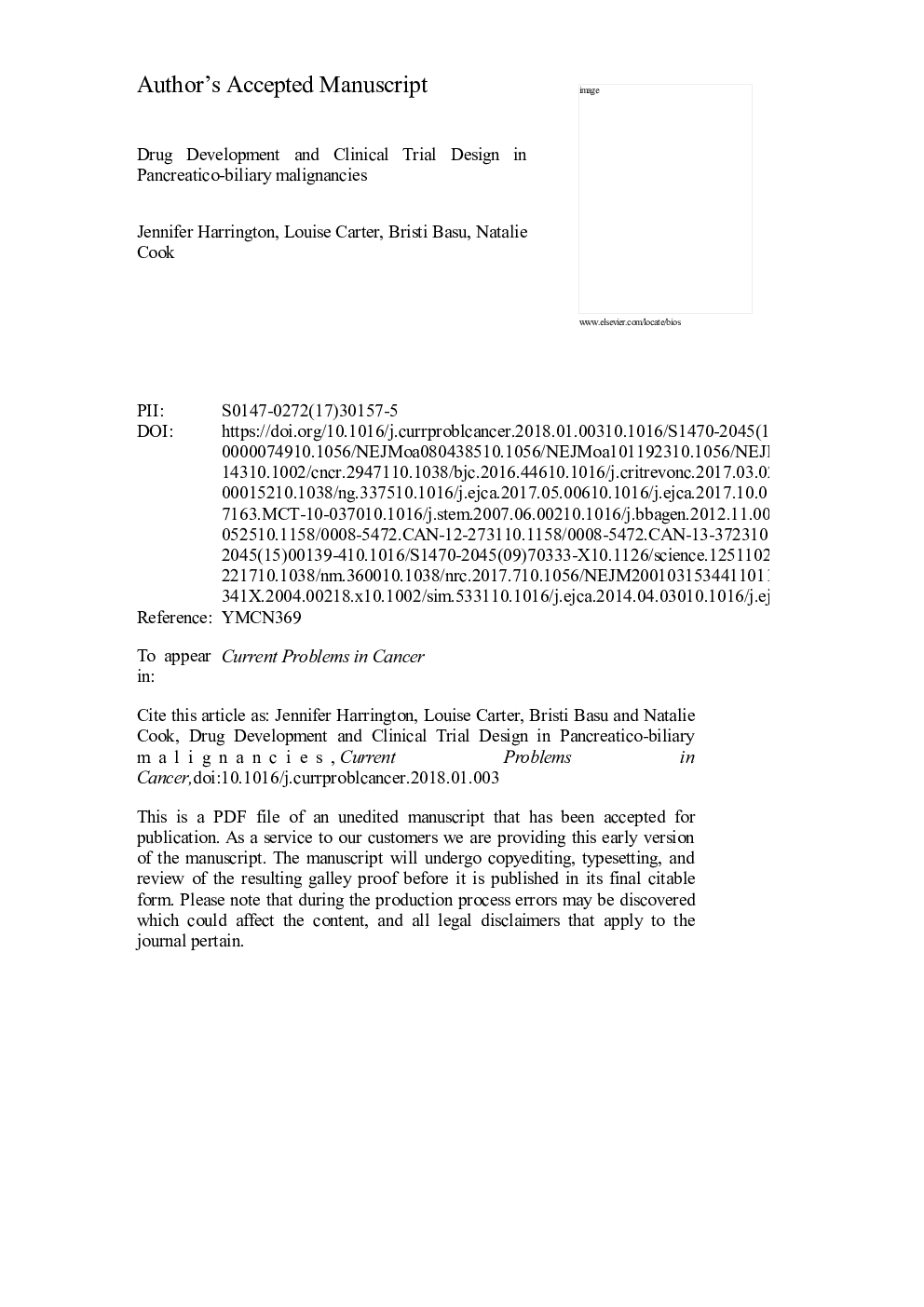| Article ID | Journal | Published Year | Pages | File Type |
|---|---|---|---|---|
| 8733863 | Current Problems in Cancer | 2018 | 45 Pages |
Abstract
Pancreatico-biliary (P-B) tumors arise from the pancreas, bile duct, and ampulla of Vater. Despite their close anatomical location, they have different etiology and biology. However, they uniformly share a poor prognosis, with no major improvements observed in overall survival over decades, even in the face of progress in diagnostic imaging and surgical techniques, and advances in systemic and loco-regional radiation therapies. To date, cytotoxic treatment has been associated with modest benefits in the advanced disease setting, and survival for patients with stage IV disease has not exceeded a year. Therefore, there is a pressing need to identify better treatments which may impact more significantly. Frequently, encouraging signals of potential efficacy for novel agents in early phase clinical trials have been followed by disappointing failures in larger phase III trials, raising the valid question of how drug development can be optimized for patients with pancreatic adenocarcinoma and biliary tract malignancies. In this article we summarize the current therapeutic options for these patients and their limitations. The biological context of these cancers is reviewed, highlighting features that may make them resistant to standard chemotherapeutics and could be potential therapeutic targets. We discuss the role of early phase clinical trials, defined as phase I and non-randomised phase II trials, within the clinical context and current therapeutic landscape of P-B tumors and postulate how translational studies and trial design may enable better realization of emerging targets together with a proposed model for future patient management. A detailed summary of current phase I clinical trials in P-B tumors is provided.
Related Topics
Health Sciences
Medicine and Dentistry
Hematology
Authors
Jennifer Harrington, Louise Carter, Bristi Basu, Natalie Cook,
